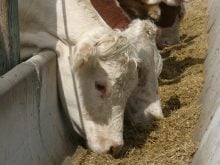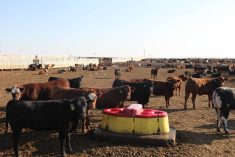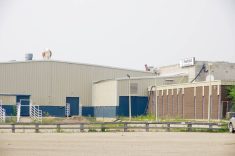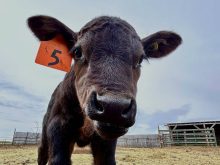NASHVILLE, Tenn. — As the popularity of branded beef programs increases, the Canadian Angus Association hopes to promote its breed as one that offers quality and consistency.
Rather than developing a certified beef program for Canada, the association has developed a Canadian Angus Rancher Endorsed program to work with small and large beef programs to promote the breed.
Seventeen different programs are now making Angus genetics part of their brand.
“Our board has determined we are not going to pursue a branded beef program of our own,” said association manager Michael Latimer.
Read Also

Trump’s tariffs take their toll on U.S. producers
U.S. farmers say Trump’s tariffs have been devastating for growers in that country.
The American Angus Association owns the Certified Angus Beef program but in Canada the cattle are promoted with a special green ear tag indicating an animal has at least 50 percent Angus genetics that is verified through the association registry. That allows red and black hide cattle to qualify for quality beef programs.
The goal is to improve beef with targeted breeding programs. Angus should boost the quality grade because of the meat composition and ability to marble.
“One of the problems with beef and everybody talks about it, is the inconsistency of it,” Latimer said.
Genetics and feeding programs can improve beef quality.
“If we can guarantee that beef, is at least 50 percent Angus genetics, then it should make that product a lot more consistent,” he said.
“We figure if we can make that consistent at least on the genetic base, that should lead to a more consistent product,” he said.
The American Angus Association offers a large genetic testing program where 16 traits have been identified when selecting sires. Genetic testing has not been adopted as widely in Canada because the DNA panels are less predictable here.
“Our cattle populations are somewhat different from those in the U.S. and those panels are not quite as accurate on the Canadian cattle, especially on the red side,” he said.
The association offers producers regular online workshops to learn more about selection and expected progeny differences to better predict weights, milking ability, calving ease and meat quality. The uptake has not been as good as hoped.
Bull buyers are making a large investment and most purebred operators have the statistics available.
“The commercial guys really don’t know what those numbers mean and how to use them. We offer some outreach programming to help them but the uptake hasn’t been anywhere near what we would like to see it,” Latimer said.















